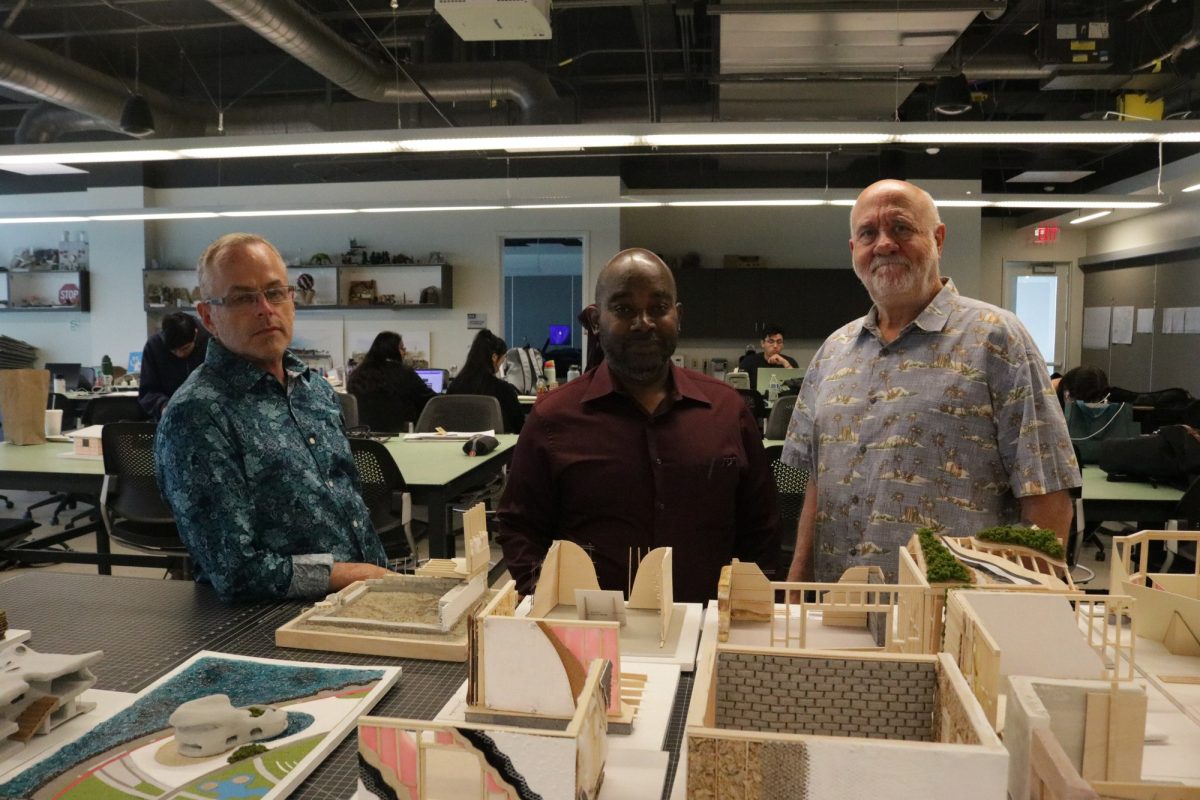Everyone knows it from the moment he appears on screen.
The high-pitched voice with a lisp. A sharply dressed, flirtatious socialite who looks like he just stepped out of a South Beach nightclub. A guy whose all-female entourage would make him the envy of most every man.
But he’s just one of the girls, out for a wild night on the town.
Gay characters are appearing more and more on television these days. The stigma of homosexuality has been greatly softened in the entertainment world.
“Will and Grace” is still popular enough to snag an Emmy nomination. Ellen DeGeneres hosts her own afternoon talk show. FOX, ABC and the WB will all be debuting shows with homosexual characters this fall.
There is no doubt that the use of gay and lesbian characters on television and in movies has increased dramatically over the last five years.
The question is whether or not the portrayal of the homosexual lifestyle has done the gay and lesbian community more harm than good.
“As far as the mainstream media is concerned, I still think that the portrayal of gays is highly derogatory,” gay student Eugene Kim said. “It’s hurtful at times.”
Kim is not the only one who finds homosexual characterizations stereotypical.
“Sometimes they’re portrayed extremely flamboyantly and in certain ways that not all gay people are,” Gay-Straight Alliance president Melissa Mercado said.
“In our society, there’s different ways to be gay,” Mercado said. “They don’t have to be flamboyant; they can be like everybody else.”
Many people find the depiction of the gay man to be particularly defamatory and inaccurate.
“Not all gay men are effeminate,” Kim said. “Some of them are rugged guys.”
“There’s people you could walk by and not even know that they were gay,” Mercado said.
One of Kim’s ways to deal with the stereotype is to simply be it.
“Sometimes, just for laughs, I just play up to it,” he said. “It’s like a defense mechanism.”
Aside from their portrayal as being effeminate in their behavior and mannerisms, many gay men are also shown to be promiscuous.
“The thing they always show with gay men is someone who’s going around sleeping with everybody, doing all these drugs, and it’s not true a lot of the time,” Mercado said.
GSA vice president D Coulombe shares Mercado’s view of how gay men are portrayed on both television and in movies.
“There’s a lot of portrayals of the single gay man, the clubbing gay man,” Coulombe said. “The drug scene and the clubbing scene are very large parts of the culture, but it’s not all of it.”
One side of the homosexual lifestyle, which is not often shown on television, is that of the family.
“Family is also a very large part of the culture but it’s just not thought of to be as interesting as the drugs and sex and everything else,” Coulombe said.
“It’d be nice if they could have an actual portrayal that was more well-rounded,” Coulombe said. “It’d be nice if there were a lot more portrayals of the family.”
Lesbianism is another part of the culture that is not seen often on network television.
“I think they need to having more lesbian visibility in the media because lesbians aren’t really portrayed at all,” Coulombe said.
Despite the fact that most of the major networks do not run many shows that have lesbian characters, some cable shows such as Showtime’s “The L Word” are thought to provide a broader, more accurate view of lesbianism.
“‘The L Word’ kind of shows a different type of lesbian,” Mercado said. “They don’t show all butch lesbians, which is what everyone thinks that all lesbians are.”
Members of all sexual orientations may find the media’s depiction of homosexuals to be stereotypical and slanted.
But it’s agreed that the portrayal of homosexuality on both the big and little screen has come a very long way in a relatively short time.
“I think whatever media exposure is still good even if it’s a generalization because (the gay community) needs visibility,” Coulombe said. “The more we’re seen, the more tolerance there will be.”





